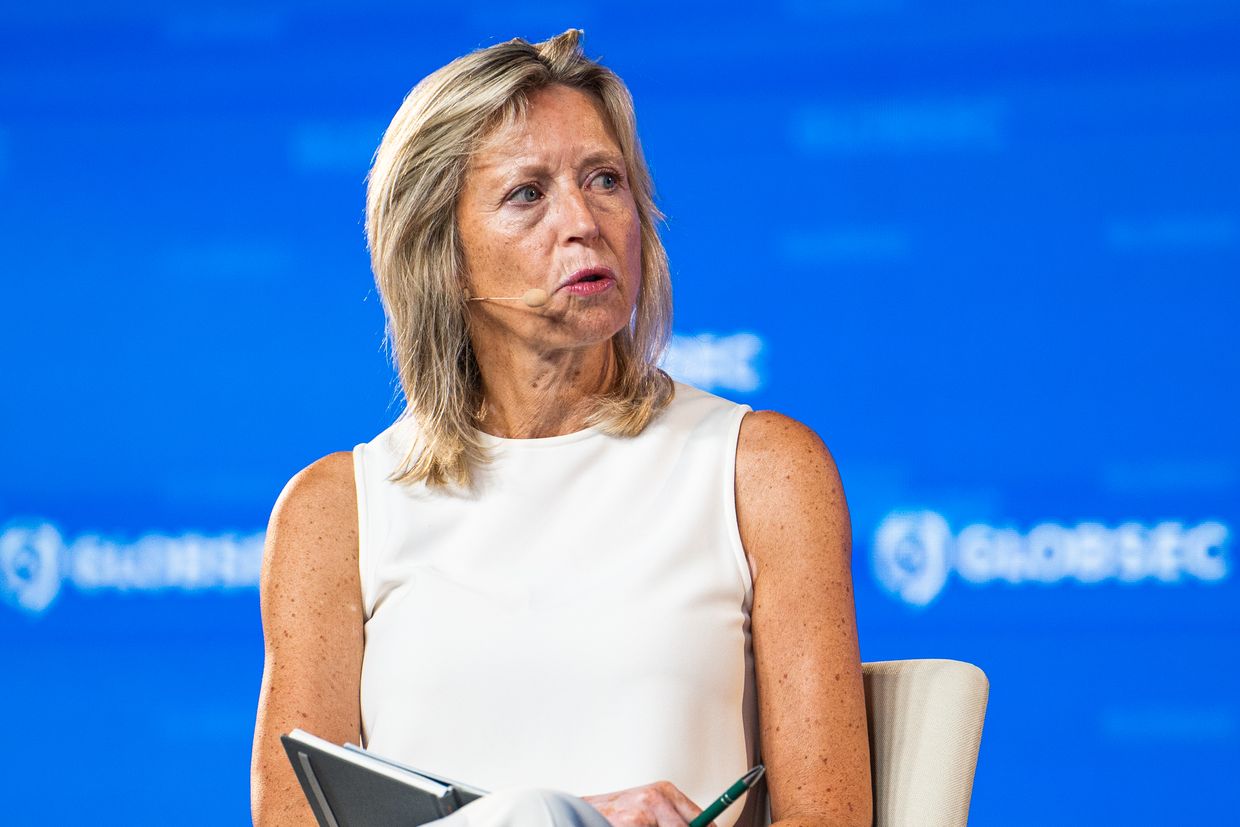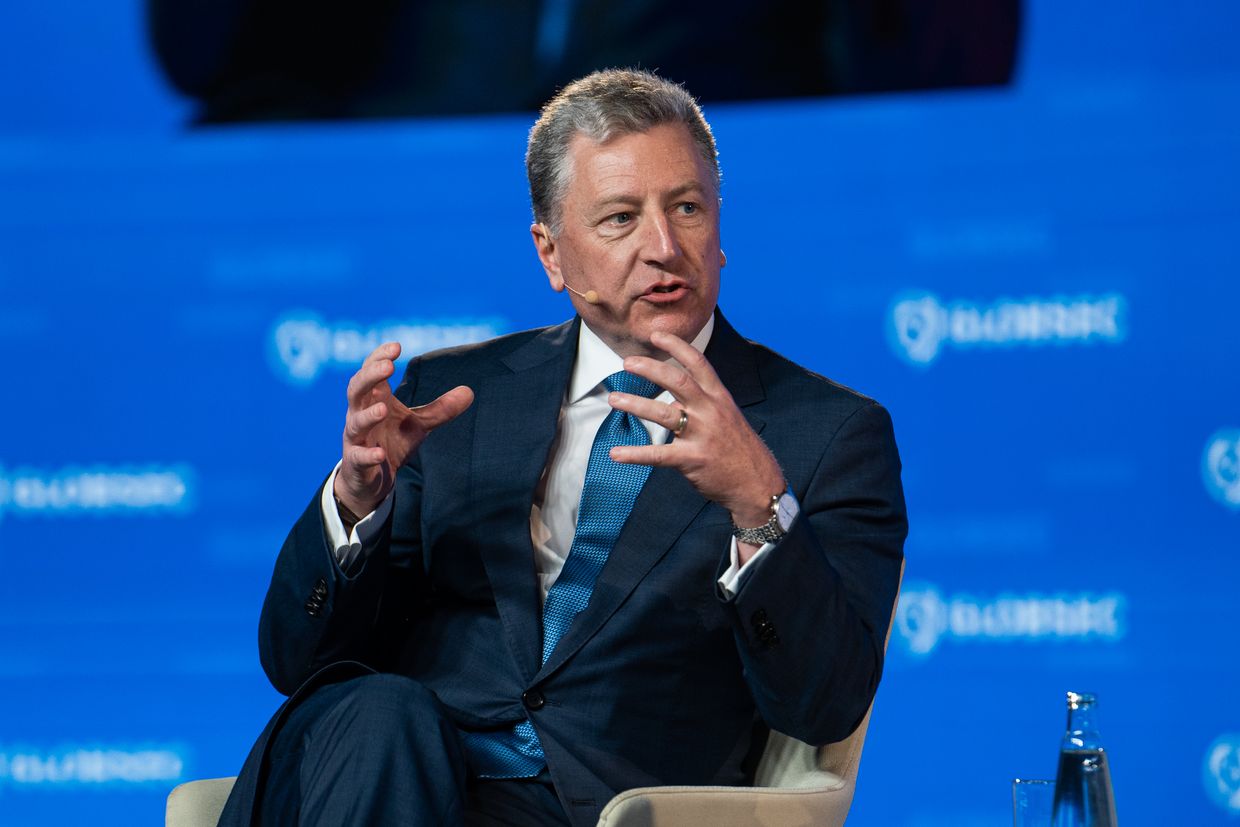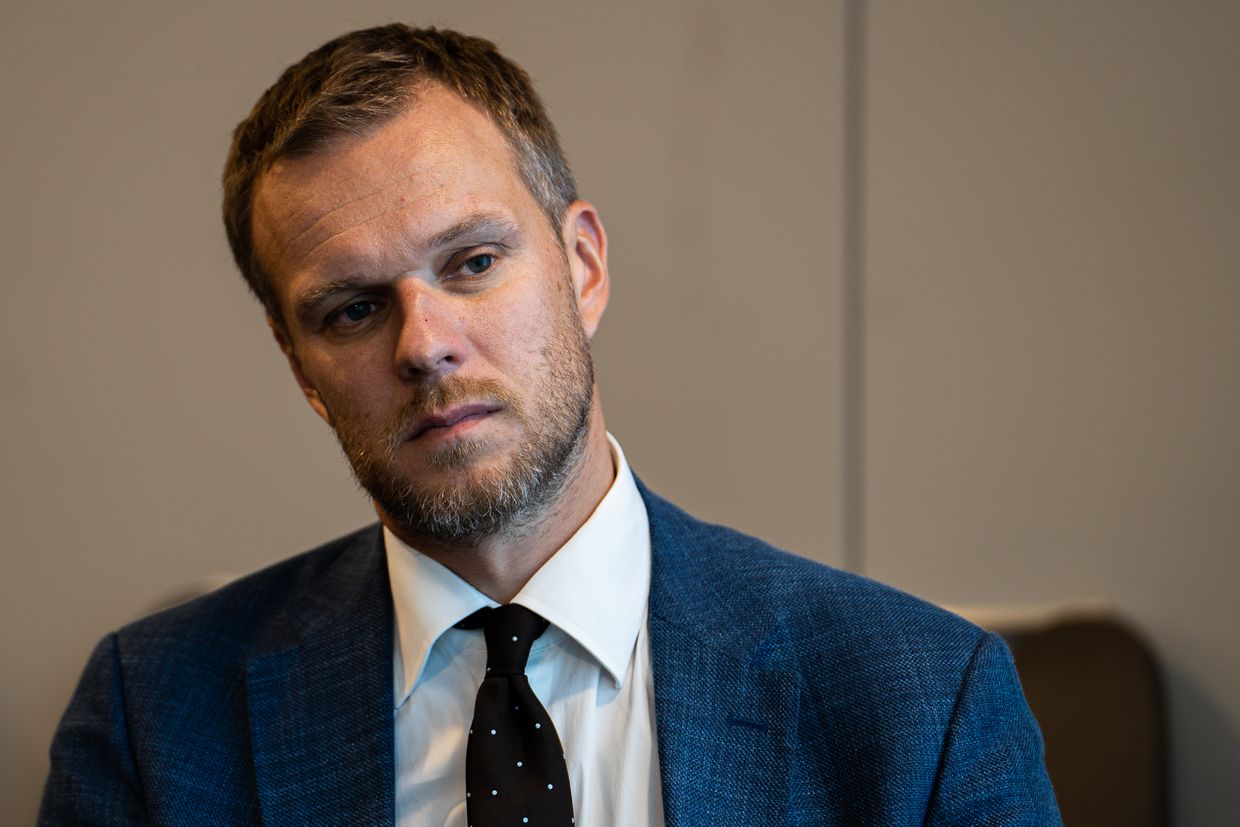"I have great hope that an agreement for a ceasefire in Ukraine will be reached this weekend," German Chancellor Friedrich Merz said on May 9, shortly before traveling to Kyiv alongside the leaders of France, Poland, and the U.K.
U.K. Prime Minister Keir Starmer, French President Emmanuel Macron, German Chancellor Friedrich Merz, and Polish Prime Minister Donald Tusk will arrive in Kyiv early on May 10.
The United States embassy in Kyiv on May 9 issued a warning that Russia could launch "a potentially significant" attack in the coming days, despite Putin's self-declared Victory Day "truce."
The sanctioned oil tankers have transported over $24 billion in cargo since 2024, according to Downing Street. The U.K. has now sanctioned more shadow fleet vessels than any other country.
The sanctions list includes 58 individuals and 74 companies, with 67 Russian enterprises related to military technology.
Washington and its partners are considering additional sanctions if the parties do not observe a ceasefire, with political and technical negotiations between Europe and the U.S. intensifying since last week, Reuters' source said.
Despite the Kremlin's announcement of a May 8–11 truce, heavy fighting continued in multiple regions throughout the front line.
Putin has done in Russia everything that Luiz Inacio Lula da Silva had been against in Brazil.
The Kyiv Independent’s contributor Ignatius Ivlev-Yorke spent a day with a mobile team from the State Emergency Service in Nikopol in the south of Ukraine as they responded to relentless drone, artillery, and mortar strikes from Russian forces just across the Dnipro River. Nikopol is located across from the Russian-occupied Zaporizhzhia Nuclear Power Plant in the city of Enerhodar.
Ukraine Compact is 'bit of window dressing,' says former Dutch defense minister

The Ukraine Compact, a security framework that was signed by 32 allied countries at the NATO summit in July 2024, is "a bit of window dressing" and falls short of a real membership plan, said former Dutch Defense Minister Kajsa Ollongren at the Globsec conference in Prague on Aug. 31.
While it is a useful overarching framework, many countries had already signed bilateral security agreements, Ollongren said.
Ollongren's comments were echoed by Kurt Volker, the former U.S. ambassador to NATO, who said the "reason that Ukraine is happy with the compact, is because the U.S. has told Ukrainians, 'you better go out and say you're happy with the compact.'"

Volker added that the compact is "not legally binding and is not a treaty," and also has no "operational clause." He compared it to the 1994 Budapest Memorandum, which stipulated that Ukraine transfer its stockpile of nuclear weapons to Russia in exchange for security guarantees from the U.S., the U.K., and Russia.
"We know how that worked out," Volker quipped.
At the same time, Ukrainian lawmaker Olena Khomenko, who was also speaking on the same panel as Volker and Ollongren, said that "we (Ukrainians) are happy with the compact."
"But this doesn't mean that we need to postpone, to think about membership in NATO as a future perspective," she added.

Most Popular

After 3 years of full-scale war in Ukraine, Europe announces plan to ban all Russian gas imports

Ukraine, Europe's ceasefire proposal includes US security guarantees, no recognition of Crimea, Reuters reports

Journalist Roshchyna's body missing organs after Russian captivity, investigation says

After Russia's deadly attack on Kyiv, Vance reposts denunciation of Zelensky

Ukrainian sea drone downs Russian fighter jet in 'world-first' strike, intelligence says
Editors' Picks

How medics of Ukraine’s 3rd Assault Brigade deal with horrors of drone warfare

As Russia trains abducted children for war, Ukraine fights uphill battle to bring them home

'I just hate the Russians' — Kyiv district recovers from drone strike as ceasefire remains elusive


